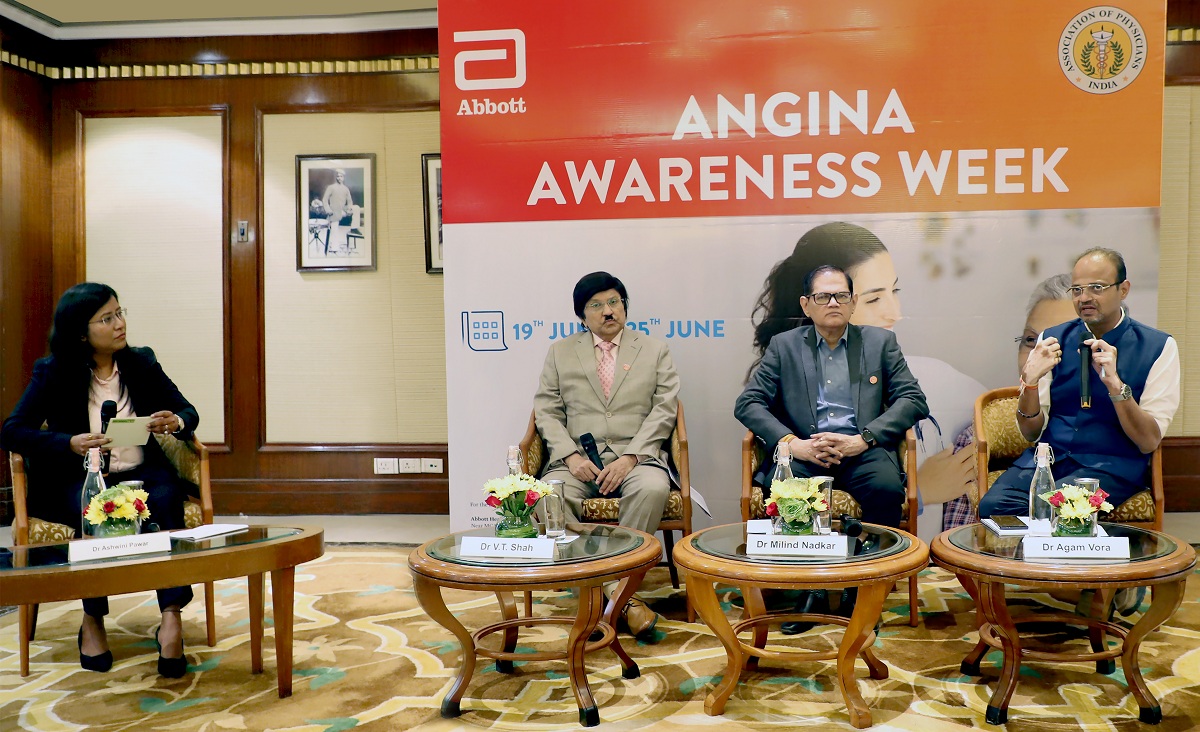The Association of Physicians of India (API), along with global healthcare company Abbott, today initiated the first ever ‘Angina Awareness Week’ in India, from June 19th to June 25th. Through this, they aim to highlight the importance of early angina diagnosis and its optimal management to reduce the risk of cardiac events and improve patient outcomes. To mark this week, they collectively unveiled an Action Plan drafted by Abbott, titled, ‘Optimal Treatment of Angina (OPTA): The need of the hour,’ highlighting best standards for timely detection and management.
Dr. Ashwini Pawar, Medical Director, Abbott India said, “Angina remains an under-diagnosed condition in India, even today. As a result of this, many do not receive optimal treatment. It’s important to address this challenge given the growing burden of cardiovascular diseases, as well as its associated cost to the country of roughly 2.17 trillion US dollars between 2012 and 2030iv. With the support from Association of Physicians of India, we’re committed to driving awareness through the initiation of the ‘Angina Awareness Week’ in India to help in earlier diagnosis and optimal angina management.”
Dr. Milind Y Nadkar, President, API, commented, “Indians experience cardiovascular diseases a decade earlier than those in western countries, which makes it vital to address the early age of onset and rapid disease progression in a timely manner. With the country also recording the highest rate of coronary artery disease worldwide, it is essential to bring more awareness to symptoms like angina, which commonly affect Indians, but are often neglected. By supporting the country’s general practitioners and cardiologists through various measures and tools, we aim to strengthen effective diagnosis and disease management.” Angina, characterized by chest discomfort, serves as an early indicator of potential heart issues, necessitating proactive healthcare measures. With India ranking high globally in cardiovascular mortality rates, the OPTA action plan introduces innovative tools like clinical checklists and diagnostic questionnaires to aid healthcare providers in accurate diagnosis and personalized treatment.




